
Philipp Haueis
@phaueis.bsky.social
Philosopher of science working on concepts, experiments, multiscale modeling and societal issues in neuroscience and climate research.
Currently assistant prof @ Bielefeld University, Germany
website: philipp-haueis.de
Currently assistant prof @ Bielefeld University, Germany
website: philipp-haueis.de
This is also a live debate in philosophy of science about eliminativism vs. pluralism regarding concepts with multiple meanings
Attention and emotion are both cases
press.uchicago.edu/ucp/books/bo...
link.springer.com/article/10.1...
Attention and emotion are both cases
press.uchicago.edu/ucp/books/bo...
link.springer.com/article/10.1...
September 17, 2025 at 6:46 PM
This is also a live debate in philosophy of science about eliminativism vs. pluralism regarding concepts with multiple meanings
Attention and emotion are both cases
press.uchicago.edu/ucp/books/bo...
link.springer.com/article/10.1...
Attention and emotion are both cases
press.uchicago.edu/ucp/books/bo...
link.springer.com/article/10.1...
Finally, Patrick McGivern pronouncing the Metabolic Turn in philosophy of cognition, with work on the role of metabolism for non-neural cognition, such as bacteria chemotaxis (4/4)
Thanks to all speakers and participants for the great Q&A!
#philsky
#neuroskyence
#cognition
#metabolism
Thanks to all speakers and participants for the great Q&A!
#philsky
#neuroskyence
#cognition
#metabolism
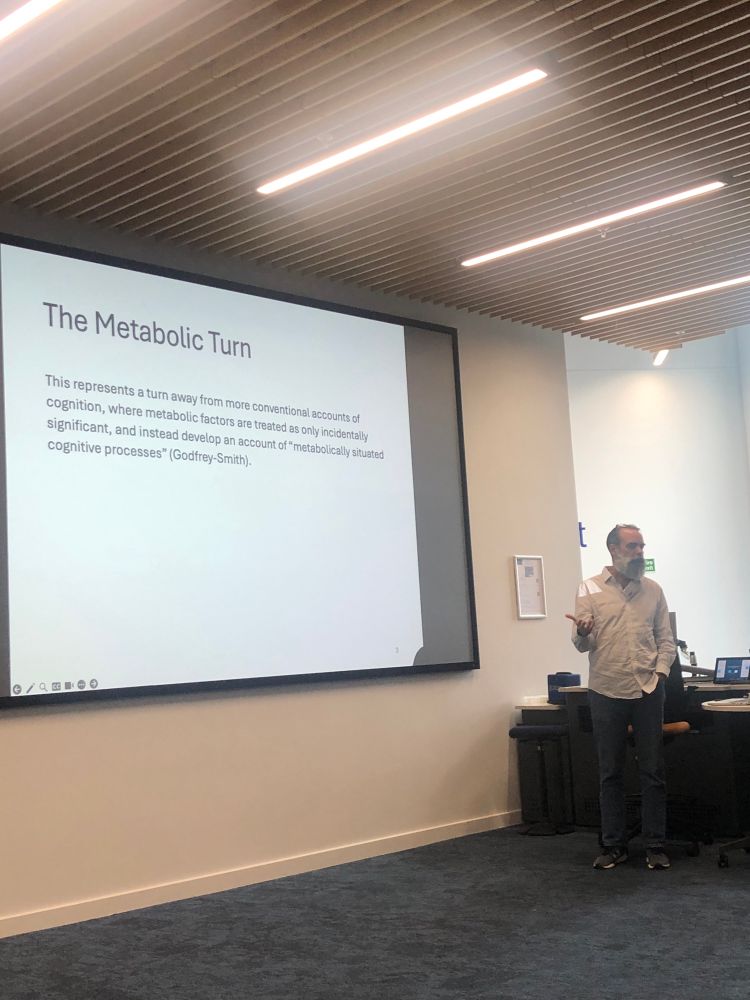
July 16, 2025 at 6:37 PM
Finally, Patrick McGivern pronouncing the Metabolic Turn in philosophy of cognition, with work on the role of metabolism for non-neural cognition, such as bacteria chemotaxis (4/4)
Thanks to all speakers and participants for the great Q&A!
#philsky
#neuroskyence
#cognition
#metabolism
Thanks to all speakers and participants for the great Q&A!
#philsky
#neuroskyence
#cognition
#metabolism
Turning to evolution, Matthew Sims (in joint work w Marta Halina) explained how predictive brain models may have evolved from corollary discharge, which itself resulted from the need to distinguish external input from sensory feedback once nervous systems relied on sensorimotor integration (3/4)
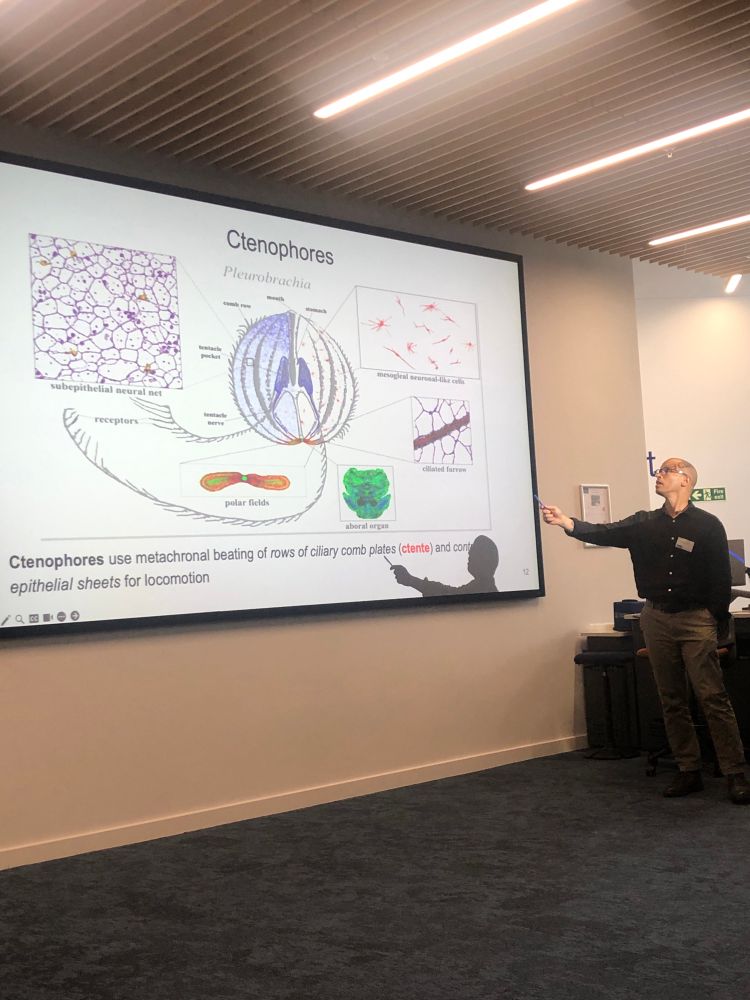
July 16, 2025 at 6:37 PM
Turning to evolution, Matthew Sims (in joint work w Marta Halina) explained how predictive brain models may have evolved from corollary discharge, which itself resulted from the need to distinguish external input from sensory feedback once nervous systems relied on sensorimotor integration (3/4)
Next was a talk by @jtheriault.bsky.social presenting a metabolic model of „activity“ in neuroimaging, suggesting that stimulus elicited BOLD responses Track prediction error processing in the brain, but not baseline metabolic load related to processing predictions (2/4)
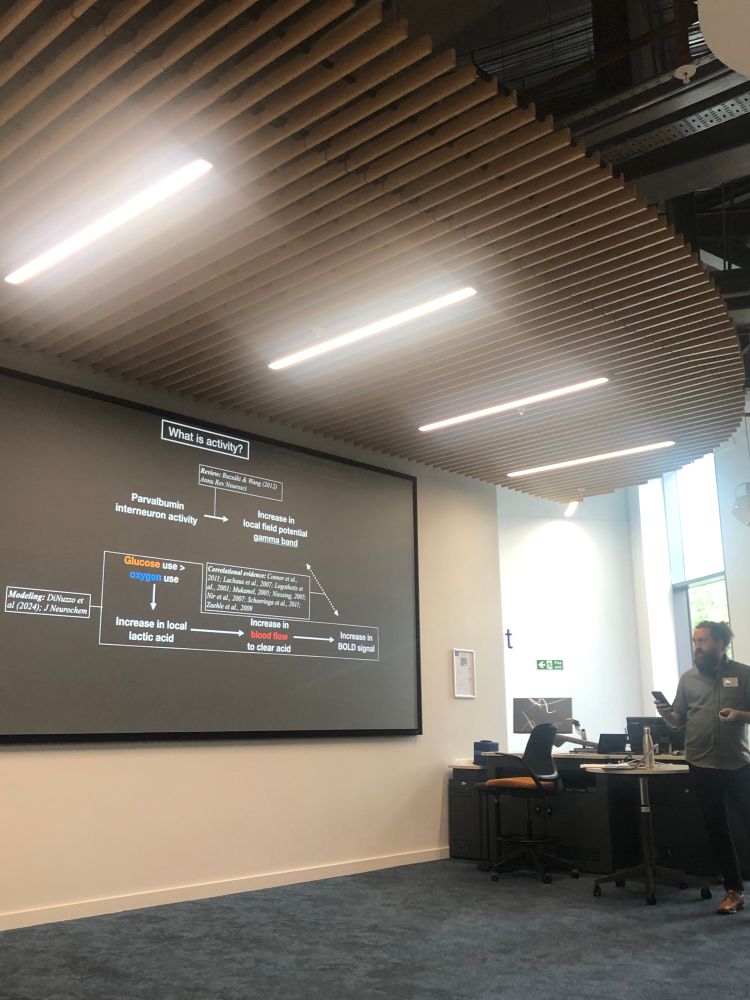
July 16, 2025 at 6:37 PM
Next was a talk by @jtheriault.bsky.social presenting a metabolic model of „activity“ in neuroimaging, suggesting that stimulus elicited BOLD responses Track prediction error processing in the brain, but not baseline metabolic load related to processing predictions (2/4)
There’s also the Journal of Unsolved questions that only accepts failed experiments etc
www.mainz.uni-mainz.de/activities/j...
www.mainz.uni-mainz.de/activities/j...
JUnQ – Journal of Unsolved Questions | GSE Mainz
www.mainz.uni-mainz.de
July 2, 2025 at 6:02 AM
There’s also the Journal of Unsolved questions that only accepts failed experiments etc
www.mainz.uni-mainz.de/activities/j...
www.mainz.uni-mainz.de/activities/j...
Agreed! I’m usually skeptical of edited volumes,but could see the value here bc many will know failure cases from their respective disciplines
July 2, 2025 at 5:59 AM
Agreed! I’m usually skeptical of edited volumes,but could see the value here bc many will know failure cases from their respective disciplines
I wrote on conceptual retirement here www.sciencedirect.com/science/arti...
This preprint also has more general thoughts on revising concepts (basis for one of the chapters): philsci-archive.pitt.edu/21213/
This preprint also has more general thoughts on revising concepts (basis for one of the chapters): philsci-archive.pitt.edu/21213/

The death of the cortical column? Patchwork structure and conceptual retirement in neuroscientific practice
In 1981, David Hubel and Torsten Wiesel received the Nobel Prize for their research on cortical columns—vertical bands of neurons with similar functio…
www.sciencedirect.com
July 2, 2025 at 5:53 AM
I wrote on conceptual retirement here www.sciencedirect.com/science/arti...
This preprint also has more general thoughts on revising concepts (basis for one of the chapters): philsci-archive.pitt.edu/21213/
This preprint also has more general thoughts on revising concepts (basis for one of the chapters): philsci-archive.pitt.edu/21213/
I’m also very interested in that (as I’m writing a book on successful and failed conceptual development atm) @smellosopher.bsky.social has a paper on failure in neuroscience here www.frontiersin.org/journals/neu...
But yes, there might be a problem of the archive in finding out about failures, no?
But yes, there might be a problem of the archive in finding out about failures, no?
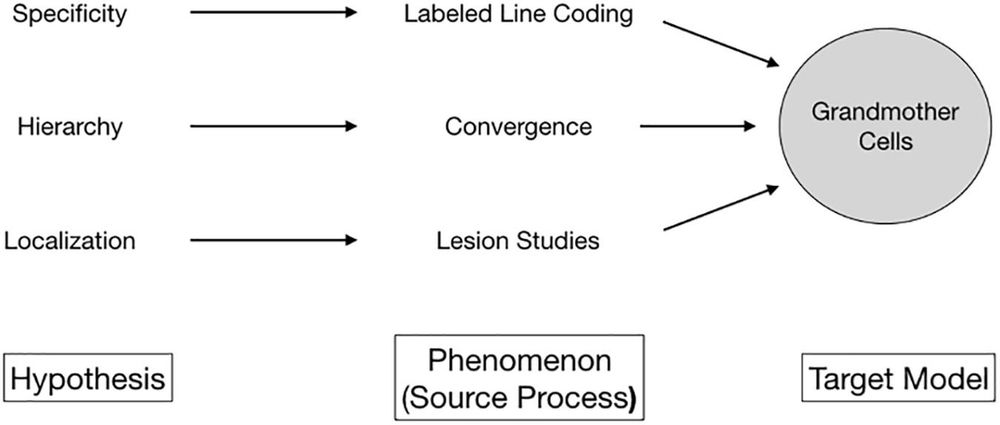
Frontiers | The Value of Failure in Science: The Story of Grandmother Cells in Neuroscience
The annals of science are filled with successes. In footnotes do we hear about the failures, the cul-de-sacs, and the forgotten ideas. Failure is how researc...
www.frontiersin.org
July 2, 2025 at 5:36 AM
I’m also very interested in that (as I’m writing a book on successful and failed conceptual development atm) @smellosopher.bsky.social has a paper on failure in neuroscience here www.frontiersin.org/journals/neu...
But yes, there might be a problem of the archive in finding out about failures, no?
But yes, there might be a problem of the archive in finding out about failures, no?
Reposted by Philipp Haueis
If you agree with our 5 requests to our universities, please sign 🖊️ the open letter and don’t forget to confirm your email! ☺️🙏
openletter.earth/open-letter-...
openletter.earth/open-letter-...
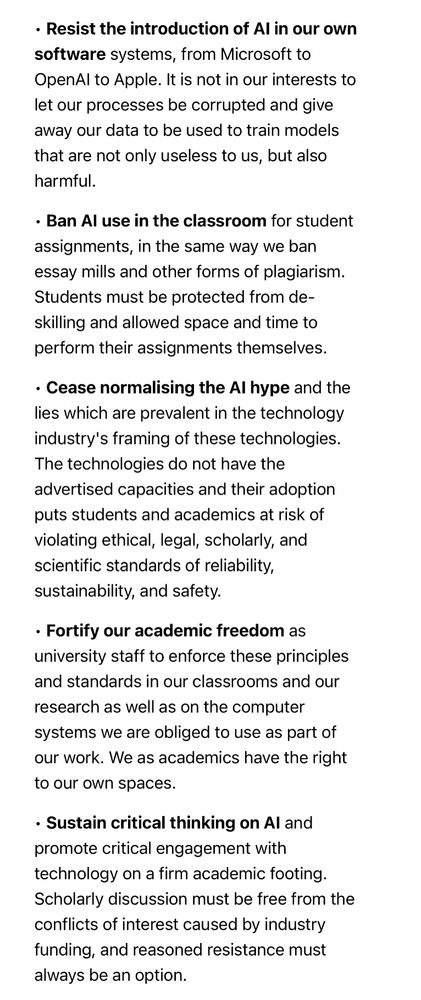
June 28, 2025 at 7:52 PM
If you agree with our 5 requests to our universities, please sign 🖊️ the open letter and don’t forget to confirm your email! ☺️🙏
openletter.earth/open-letter-...
openletter.earth/open-letter-...
It’s an epistemic notion of reduction, where it’s about the explanatory knowledge gained. I’m not defending it as the right notion of reduction, just clarifying what Dan Burnston means by it. If you have a stronger view of reduction, then sure it’s not reductive.
June 21, 2025 at 9:11 PM
It’s an epistemic notion of reduction, where it’s about the explanatory knowledge gained. I’m not defending it as the right notion of reduction, just clarifying what Dan Burnston means by it. If you have a stronger view of reduction, then sure it’s not reductive.
I mean it all depends about what you mean by „reductive“. For the author of the paper it means that 1) there’s a conceptual link between decision and accumulation to bound and 2) that the neural models have explanatory advantages (more detailed prediction, unification, explaining anomalies) (1/2)
June 21, 2025 at 9:11 PM
I mean it all depends about what you mean by „reductive“. For the author of the paper it means that 1) there’s a conceptual link between decision and accumulation to bound and 2) that the neural models have explanatory advantages (more detailed prediction, unification, explaining anomalies) (1/2)
whether there are implicit ontological assumptions even in this epistemic approach, or whether we’d allow ‚weird‘ reductions where neuroscience is reduced to some future higher order cybernetic science. Check out the paper here link.springer.com/article/10.1...
#philsky
#neuroskyence
#philsci
#philsky
#neuroskyence
#philsci
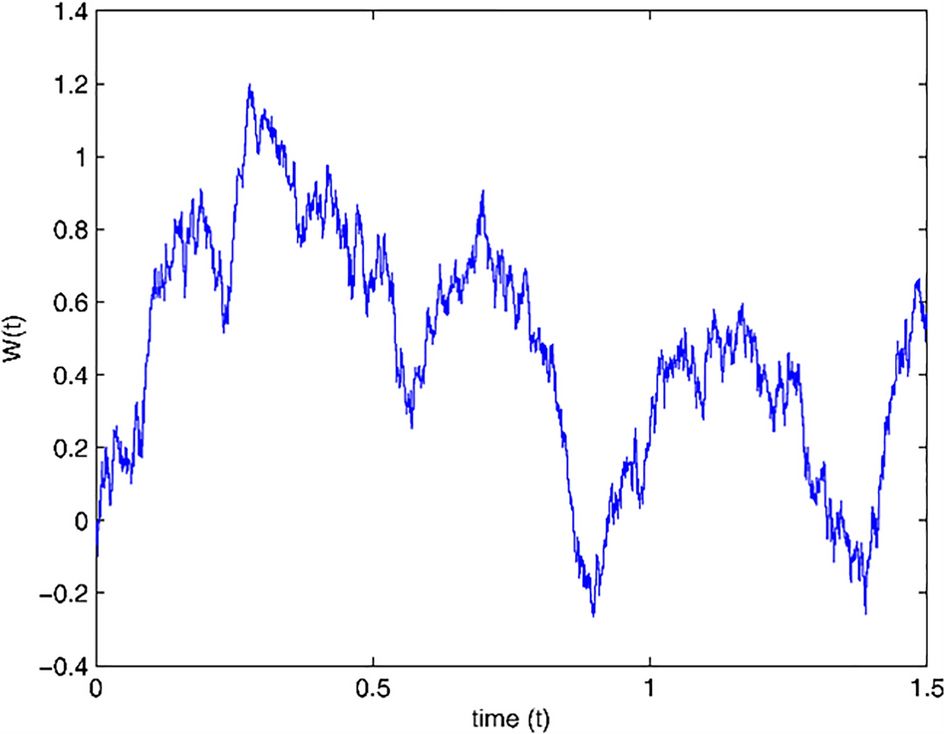
Epistemic reduction of the concept of ‘decision’ - Synthese
“Reduction” is a widely rejected view of how commonsense psychological notions relate to neuroscience. I argue that there is a particular view of reduction on which reduction of the key commonsense co...
link.springer.com
June 18, 2025 at 8:32 PM
whether there are implicit ontological assumptions even in this epistemic approach, or whether we’d allow ‚weird‘ reductions where neuroscience is reduced to some future higher order cybernetic science. Check out the paper here link.springer.com/article/10.1...
#philsky
#neuroskyence
#philsci
#philsky
#neuroskyence
#philsci
Also tried to make it all more precise when being a bit more mature here: link.springer.com/article/10.1...
Nice to see that some like @jtheriault.bsky.social are moving broadly in that direction (or a my mentor would say: they’re barking up the same alley ;)
Nice to see that some like @jtheriault.bsky.social are moving broadly in that direction (or a my mentor would say: they’re barking up the same alley ;)
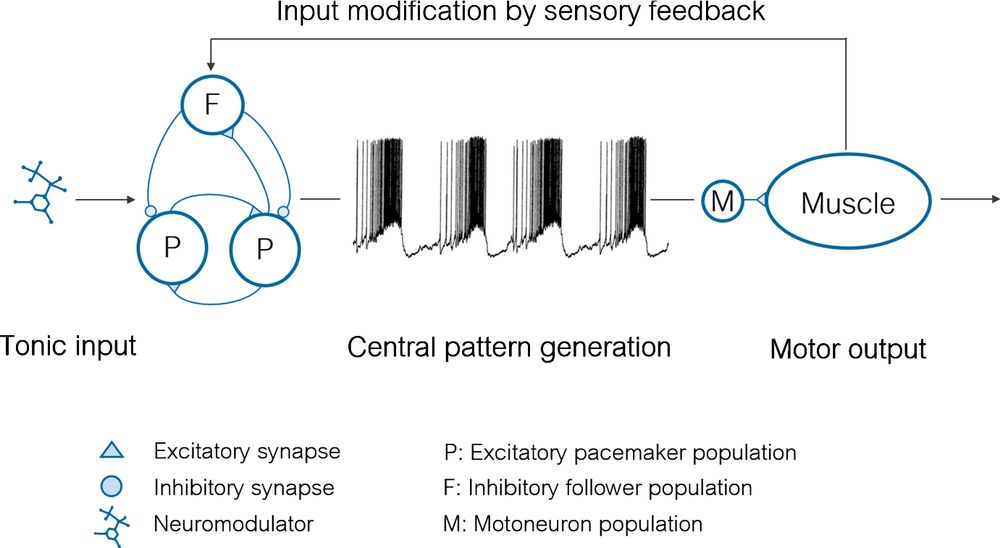
Beyond cognitive myopia: a patchwork approach to the concept of neural function - Synthese
In this paper, I argue that looking at the concept of neural function through the lens of cognition alone risks cognitive myopia: it leads neuroscientists to focus only on mechanisms with cognitive fu...
link.springer.com
June 18, 2025 at 8:15 PM
Also tried to make it all more precise when being a bit more mature here: link.springer.com/article/10.1...
Nice to see that some like @jtheriault.bsky.social are moving broadly in that direction (or a my mentor would say: they’re barking up the same alley ;)
Nice to see that some like @jtheriault.bsky.social are moving broadly in that direction (or a my mentor would say: they’re barking up the same alley ;)
I wrote about this when a was a Phil sci kid here: www.frontiersin.org/article/10.3...
(Getting some hmms from neuroskeptic back in the day @micahgallen.com )
(Getting some hmms from neuroskeptic back in the day @micahgallen.com )
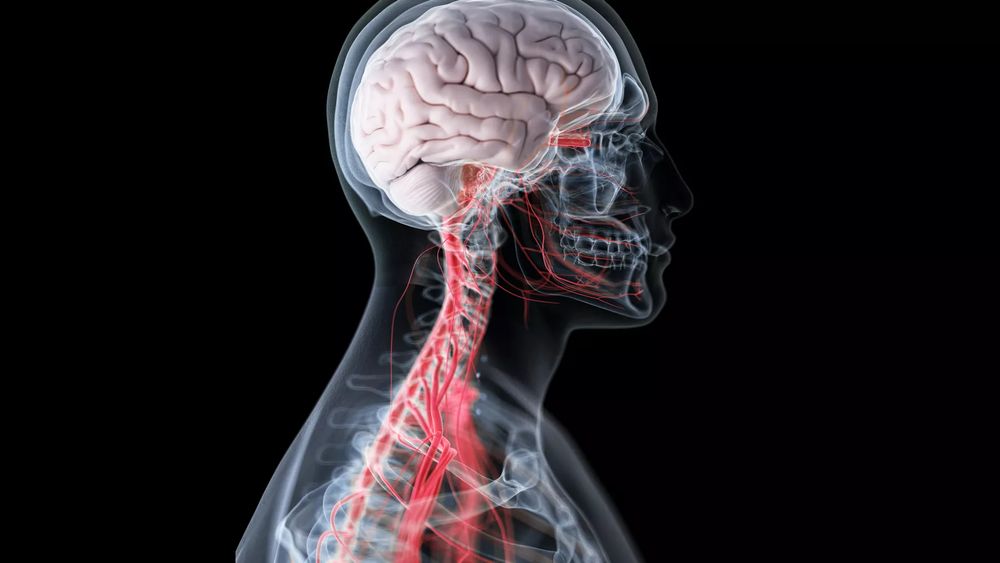
Frontiers | Meeting the brain on its own terms
In contemporary human brain mapping, it is commonly assumed that the “mind is what the brain does”. Based on that assumption, task-based imaging studies of t...
www.frontiersin.org
June 18, 2025 at 8:13 PM
I wrote about this when a was a Phil sci kid here: www.frontiersin.org/article/10.3...
(Getting some hmms from neuroskeptic back in the day @micahgallen.com )
(Getting some hmms from neuroskeptic back in the day @micahgallen.com )
(2/2) the role of information theory for efficient coding explanations, realistic and idealistic interpretations of computational models, and how Chirimuuta‘s thinking on this developed into the book „The Brain Abstracted“ mitpress.mit.edu/978026254804...
#neuroskyence
#philsci
#philosophy
#edusky
#neuroskyence
#philsci
#philosophy
#edusky
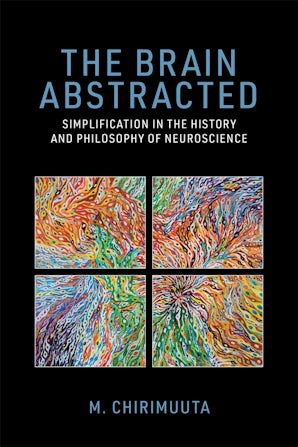
The Brain Abstracted
All science needs to simplify, but when the object of research is something as complicated as the brain, this challenge can stretch the limits of scientific ...
mitpress.mit.edu
May 31, 2025 at 10:52 AM
(2/2) the role of information theory for efficient coding explanations, realistic and idealistic interpretations of computational models, and how Chirimuuta‘s thinking on this developed into the book „The Brain Abstracted“ mitpress.mit.edu/978026254804...
#neuroskyence
#philsci
#philosophy
#edusky
#neuroskyence
#philsci
#philosophy
#edusky
2/2 (when should we accept or reject characterizations of phenomena?), and big picture issues (realism vs conventionalism). Here’s the link to Dave’s paper: www.sciencedirect.com/science/arti...
Also stay tuned for his upcoming book on the history of memory transfer and the philosophy of memory!
Also stay tuned for his upcoming book on the history of memory transfer and the philosophy of memory!
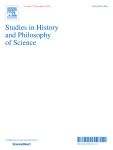
Rip it up and start again: The rejection of a characterization of a phenomenon
In this paper, I investigate the nature of empirical findings that provide evidence for the characterization of a scientific phenomenon, and the defea…
www.sciencedirect.com
May 7, 2025 at 6:41 PM
2/2 (when should we accept or reject characterizations of phenomena?), and big picture issues (realism vs conventionalism). Here’s the link to Dave’s paper: www.sciencedirect.com/science/arti...
Also stay tuned for his upcoming book on the history of memory transfer and the philosophy of memory!
Also stay tuned for his upcoming book on the history of memory transfer and the philosophy of memory!

